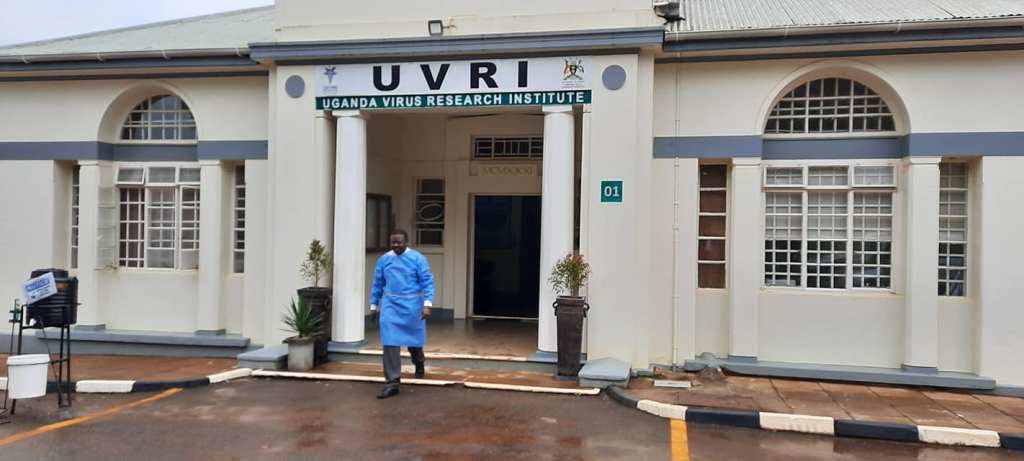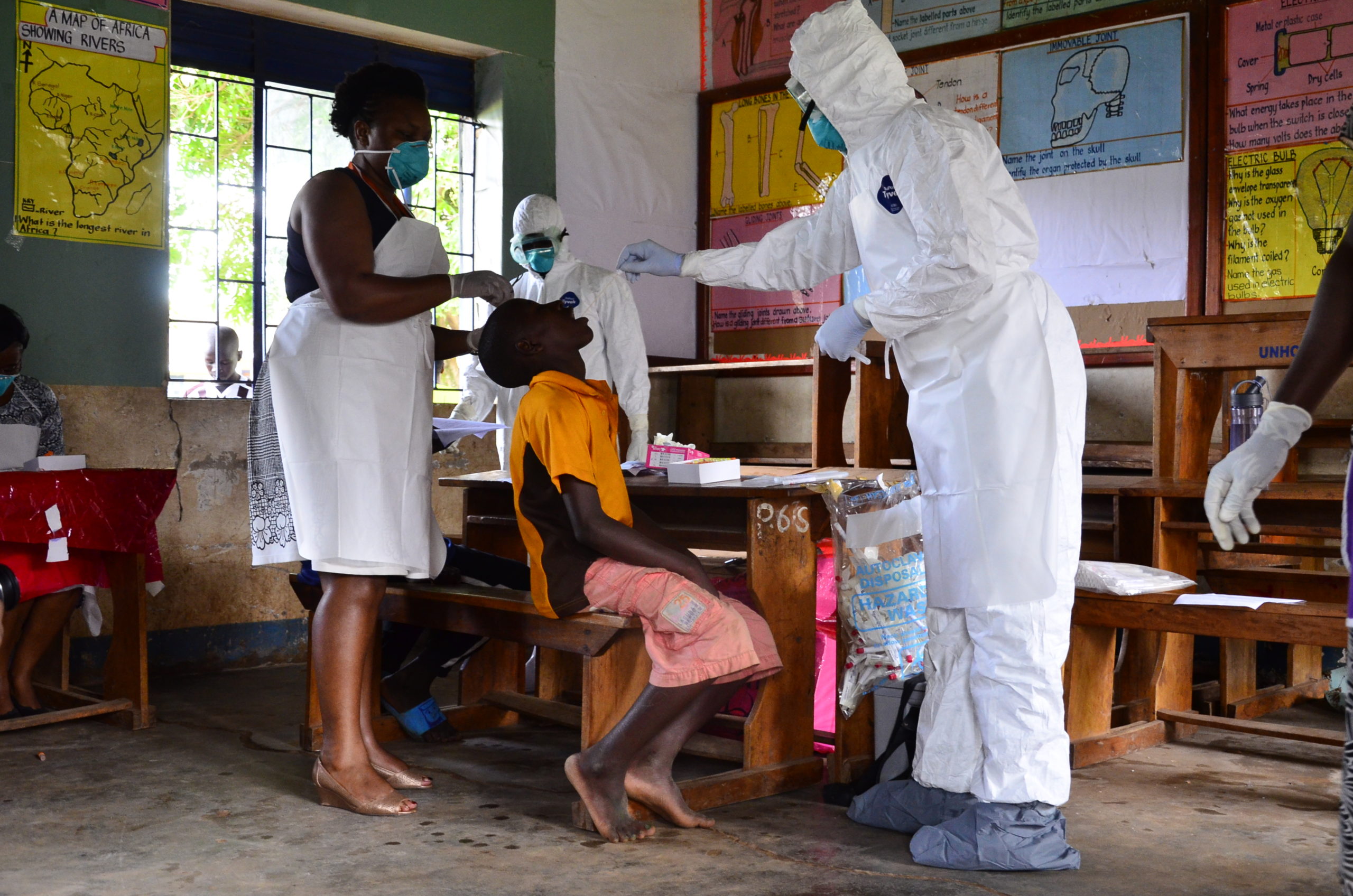Less than one year since scientists began work on potential Covid-19 vaccines, several candidates have proven to be successful, with some like the Pfizer/BioNTech vaccine already starting to be rolled out after receiving authorisation from the USA Food and Drug Administration.
A handful of other vaccines in phase III trials are also showing signs of promise. Phase III is when the vaccine is being tested on large numbers of people for efficacy and safety. In contrast, the search for a vaccine against the HIV virus, which has killed millions of people globally remains elusive despite decades of work.
Prof. Pontiano Kaleebu, the head of the Uganda Virus Research Institute, and one of the continent’s foremost researchers on HIV vaccines and viruses explains to Vox Populi’s Evelyn Lirri why it has taken the scientific community a much shorter time to find a Covid-19 vaccine, the success of the Pfizer vaccine and the challenges of rolling it out in a country like Uganda.

Why has it been easier and quicker to find a Covid-19 vaccine but difficult to get one for HIV?
Majority of the people who get Covid-19–about 80 percent recover. Others get mild to moderate symptoms, while few suffer severe forms of the disease. Many tend to recover without treatment because of the immune response that the body generates.
Therefore, a person who is developing a vaccine is trying to mimic what the body does. But for HIV, have you heard of anyone who gets infected and recovers or clears the virus from the body? It doesn’t happen. So, nature itself in this case has failed. This means a person who is designing a vaccine for HIV has to do what nature has failed to do. But there are people who have puzzled us—people called elite controllers, they have the virus but it remains undetected in their body. Those have also been used to try and understand the virus. The other complication with HIV is that the virus changes so much, which makes it difficult to develop a vaccine.
A lot of the work I have been doing over the years has focused on understanding HIV diversity—sequencing the virus to understand the effects of HIV diversity on antibody response. We are still looking for a vaccine that can give us good neutralizing antibodies but HIV diversity is still one of the challenges to achieving that.
Also, HIV has what we call lax proof reading, when it is multiplying in the body, it makes mistakes in its genetic makeup and there is no mechanism to correct it. But Covid-19 diversity is very small. We have groups like A, B, B1 but the change is not so much because it has a mechanism to proofread and correct itself. In fact, even flu changes much more than Covid-19.
Would you say a lot of the work that has helped the world get a Covid-19 vaccine faster has benefited from scientific advances from diseases such as HIV, Ebola or Zika?
The success of the Covid-19 response globally and here in Uganda has been because of the investments in other diseases over the years. In Uganda, for example, the lab infrastructure we are using to test for Covid-19 was developed for HIV. The capacity we have right now to manage Covid-19 in terms of human resource is because of HIV.
But also, a lot of investment in terms of money has been injected into Covid-19 in the past few months, which has helped to accelerate this progress.
Should increasing cases of Covid-19 in the country be a cause of concern amidst the fact that almost one year into the pandemic, some people still don’t take the disease seriously?
Covid-19 is real, only that in our case the mortality is still low. The reason why we were concerned and took decisive action early is because it spreads so fast and so many people can get infected within a short period of time.
If left to spread, and if it killed, say just one percent of the population, the number of deaths would be higher than what we have registered for HIV over the years. Unfortunately, some people will only believe Covid-19 is real when someone they know dies of the disease. That is the same experience we had with HIV—some people didn’t believe it existed while others lived in denial of it, until they contracted it or someone they knew did so.

When Covid-19 started spreading around the world, the forecast for Africa was grim. But despite rising infections, it appears we have been spared the worst so far. What could explain this?
In Africa, the spread of Covid-19 has not been as projected especially when it comes to mortality.
We want to believe that there is something that is protecting us. A few things that are being looked at: Do we, for example, have other corona viruses that we are infected with and there is possibly cross immunity protecting us? In Africa generally, we have more young people than Europe and America–that could also be contributing to the lower mortality. Although Covid-19 also infects young people, it is the elderly who are more likely to develop severe cases of the disease, often associated with non-communicable diseases such as diabetes and hypertension and communicable infections such as HIV.
The quick interventions that our governments took to curb the spread of the virus, including imposing strict lockdowns, closing of borders and schools also contributed to the slow spread of the disease, since the early infections were imported cases.
The Pfizer and Moderna vaccines present some ray of hope and some of the countries where the disease has hit hardest are preparing to vaccinate their populations. When should Africa, and for that matter Uganda expect to get the Covid-19 vaccine?
We shall have it, but a little bit later. The World Health Organisation Africa Regional office says they would like to have at least three per cent of the population in Africa get access to the vaccine by the end of the first quarter of 2020. And then expand that to 20 per cent of the population by the end of that year.
Governments across the continent, including Uganda are already working through the Vaccine Alliance (GAVI)-coordinated COVAX Facility to procure the Covid-19 vaccines. COVAX is a financing mechanism to ensure equitable access to Covid-19 vaccines to low and middle-income countries. When we rollout the vaccine here, we shall start with frontline health workers, the elderly and those with other comorbidities.
If 20 percent of the African population gets vaccinated by the end of 2021 as WHO hopes, does that create herd immunity?
You need about 70 per cent to create herd immunity. Which means that if you have about 70 per cent of people who have immunity, even if you don’t vaccinate the 30 per cent, you drastically reduce transmission.
How will the Pfizer vaccine for instance, which requires to be stored at temperatures below-80 degrees Fahrenheit be distributed in a settling like ours?
A vaccine that requires to be kept under temperatures of minus 94 degrees Fahrenheit is going to be a huge logistical challenge. Most commonly used vaccines are stored and distributed at between 2-8 degrees Celsius. In the case of the Pfizer vaccine for Covid-19, the infrastructure needed to get it to people is daunting. So, while we think of when the vaccine will arrive here, we need to think infrastructure as well. Even richer African countries such as South Africa are already saying they do not have the infrastructure and logistical capacity needed to distribute these vaccines. An ultra-low temperature freezer that can store vaccines under minus 94 degrees Fahrenheit may cost about $20,000 each. Even us at the Uganda Virus Research Institute find them hard to maintain. They break down and use a lot of energy. So, storage and distribution are going to be very challenging. One alternative however could be for the government to invest in dry ice, which is an inexpensive way to maintain low temperatures.









